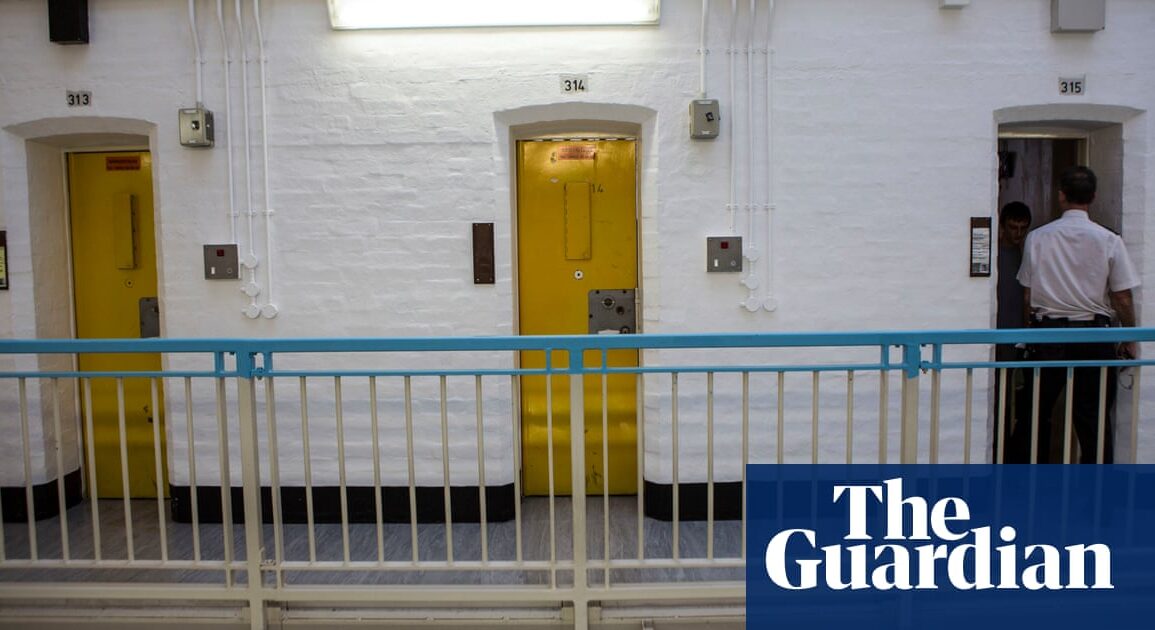
The prison population could top 100,000 within five years in England and Wales, official estimates show.
The justice department acknowledged that a perfect storm of rising prosecutions, politicians bringing in higher maximum sentences, and soaring numbers of people on remand – meaning they are in jail awaiting trial or sentencing – are responsible for the projected rise.
The prison population, which currently stands at 86,000,is forecast to increase to between 95,700 and 105,200 by March 2029, with a central estimate of 100,800, figures published on Thursday show.
The Ministry of Justice (MoJ) cited factors including “continued growth” in the number of suspects being charged and prosecuted, more cases coming to court, the “rising levels of people on remand” – which has risen 87% since 2019 and stands at a record high – and “changes in sentencing policy and behaviour to keep the most serious offenders in prison for longer”.
Whitehall’s spending watchdog warned earlier this week that government plans to boost prison capacity could fall short by thousands of cell spaces within two years and cost the taxpayer billions of pounds more than anticipated.
Since September, the government has been freeing thousands of inmates early in a bid to cut jail overcrowding by temporarily reducing the proportion of sentences that some prisoners must serve behind bars in England and Wales from 50% to 40%. But prisons are still expected to reach critical capacity again by July.
MoJ figures show there were 86,059 adult prisoners behind bars in England and Wales on Monday, slightly higher than the 86,038 recorded at the beginning of last week. The so-called operational capacity for English and Welsh men and women’s prisons is 88,852, indicating there is cell space for 2,793 criminals.
The latest data means the prison population is only 2.8% lower than when the number of inmates being held hit a record high of 88,521 on 6 September, PA Media analysis shows.
An additional 1,350 cell spaces tend to always be kept free above the overall operational capacity of the prison estate in England and Wales as a contingency measure so jails can cope with a sudden influx of inmates or change in the make-up of the prison population, according to the MoJ.
This week’s “scathing” National Audit Office (NAO) report found that Boris Johnson’s plan to provide 20,000 new prison places by 2026 is due to be completed five years late and billions of pounds over budget.
The NAO said plans for prison capacity were “insufficient to meet future demand” amid a projected shortage of 12,400 places by the end of 2027, with costs expected to be at least £4bn higher than initially estimated.
HM Prison & Probation Service (HMPPS) has so far created a third – 6,518 – of the places in England and Wales it committed in 2021 to deliver by the mid-2020s. Expansion plans in the prison estate are expected to cost between £9.4bn and £10.1bn, which auditors said would be at least £4.2bn above previous estimates.
The report said prison capacity was projected to increase more slowly than demand. The MoJ expects a shortage of 12,400 places by 2027, if demand increases according to its central forecast. It was relying on the current sentencing review to reduce demand for prison places and close the gap, auditors said.
This post was originally published on this site be sure to check out more of their content.









